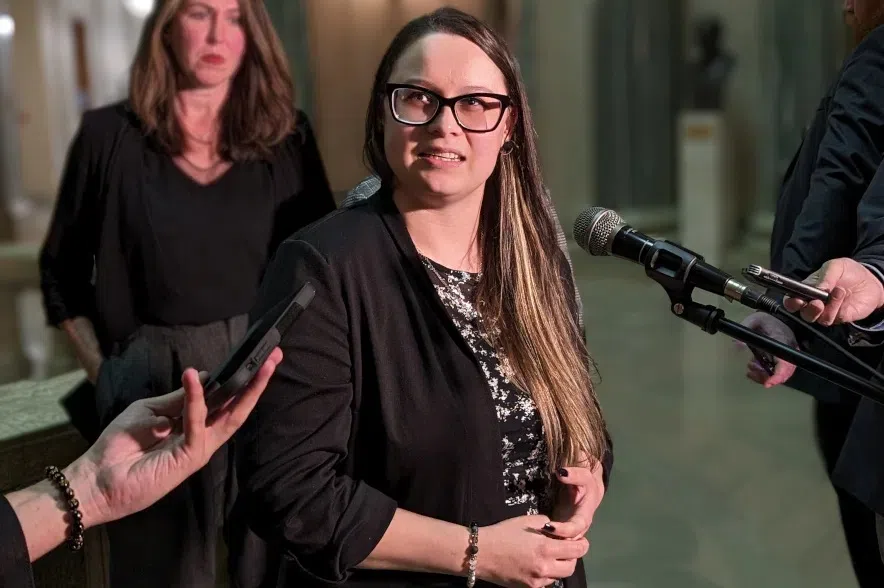Taya Thomas has first-hand experience of what it’s like when the school system doesn’t have enough resources for a student.
Her daughter, Mayelle, had special needs.
“She was a wonderfully bright child,” said Taya. “(She was) just very loved in her community. Everybody was always there to support her.”
Mayelle was in a wheelchair and had some developmental delays, but Taya said that didn’t stop her from engaging in things like any other child.
Mayelle passed away in December at the age of 13, but before that, she was in school in Regina – and Taya said there were a lot of struggles.
The classroom she was in didn’t have appropriate air conditioning, and Mayelle couldn’t sweat, so sometimes she would overheat and Taya would have to come and get her.
Taya said the school, Grant Road School in Regina, was outdated so Mayelle’s wheelchair and equipment barely fit through the doorways.
Mayelle was able to start school early, getting into the developmental classroom when she was three years old – but Taya said funding was cut after that.
“Other kids like her are not able to start school early if they have some developmental challenges,” she said.
The school also cut the music program Mayelle loved so much and the speech pathologists Taya said created huge improvements for Mayelle’s communication.
“Cutting all these programs that they needed didn’t ever make sense to me,” said Taya.
There were also always too many kids in the classrooms, according to Taya. She said that in her daughter’s classroom, there were 10 high-needs students with one teacher, one nurse and three educational assistants.
That extended to the special-needs high school program as well. Mayelle didn’t get the chance to go, but Taya said there wasn’t enough room in the program.
“They asked me if I could give up her spot to go to high school so other kids who were supposed to go last year could go this year,” explained Taya.
She said she couldn’t imagine the struggles of other kids who couldn’t get into the developmental program.
“How are those teachers dealing with 30-plus kids, plus maybe one autistic kids or somebody who needs a little extra help? How are their needs being met? How are the teachers handling that? I can only imagine they’re pretty burnt out at the end of the day,” said Taya.
Taya came forward this week to explain all this and show why she thinks teachers and schools should be getting all the resources they’d been asking for in contract negotiations with the province.
She said the provincial government needs to not only commit to the funding, but also give teachers the reassurance they’ll have what they need to continue teaching and supporting kids.
Saskatchewan’s teachers are expected to vote on the government’s latest offer in early May.
Taya was invited to the Legislative Building by the Opposition NDP.
When NDP members asked questions about Taya’s concerns during Question Period, Education Minister Jeremy Cockrill talked about the investments government had made in the spring budget – a 15 per cent increase to classroom supports, millions more for school capital costs, and the multi-year funding agreement signed with school divisions.
“We fully understand as government that we want to ensure that the schools that our children go to each and every single day are adequately prepared and adequately equipped to meet the needs of our students,” said Cockrill.
The minister said school divisions around the province might make different decisions on how to use funding, and also attacked the NDP for its education funding when the party was last in power nearly two decades ago.
Taya met with the minister earlier this week and was frustrated when he made an insensitive comment, facetiously asking whether the Saskatchewan Teachers’ Federation wanted him to give them his first-born child.
Cockrill claims be apologized for the comment, Taya said he didn’t.











